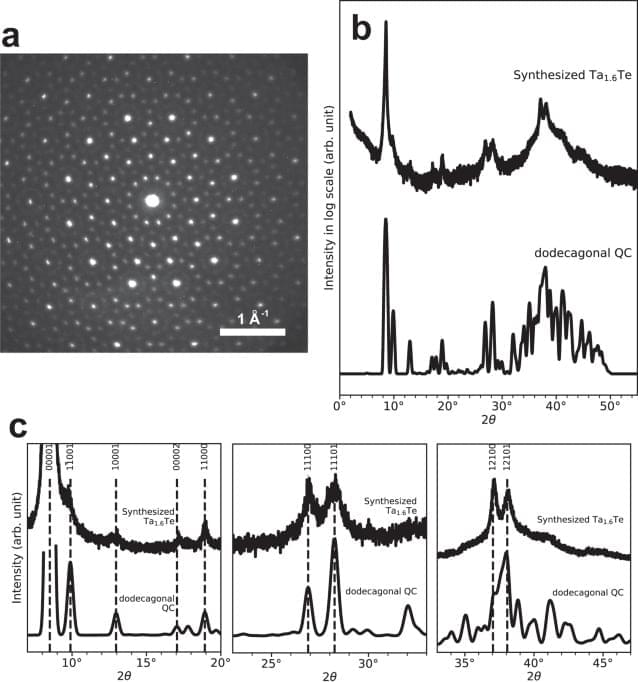Recent theoretical studies36,37,38 have revealed that quasicrystalline superconductors exhibit several unconventional behaviors that are typically not observed in other known superconductors in periodic and disordered systems, thus opening a new field in the research of superconductivity. Nagai36 has studied superconducting tight-binding models of Penrose and Ammann – Beenker lattices (typical two-dimensional quasicrystalline lattices) and demonstrated an intrinsic vortex pinning due to spatially inhomogeneous superconducting order parameter. Such an inhomogeneous order parameter arises from the quasicrystalline structural order, and therefore, the vortex pinning occurs without an impurity or defect. Sakai et al37. have investigated quasicrystalline superconductivity using an attractive Hubbard model on a Penrose lattice using the real-space dynamical mean-field theory. Unconventional spatially-extended Cooper pairs were formed; the sum of the momenta of the Cooper pair electrons was nonzero, in contrast to the zero total momentum of the Cooper pair in the conventional BCS superconductivity. Such a nonzero total momentum of the Cooper pair is also observed for the Fulde – Ferrell – Larkin – Ovchinnikov (FFLO) state previously proposed for periodic systems39,40,41,42. However, the unconventional Cooper pairing in the model QC is completely different from the FFLO state because the Cooper pairing occurs under no magnetic field. In addition, under a high magnetic field, a state similar to the FFLO state is formed in the model QC38. However, this state is also different from the conventional FFLO state in periodic systems and forms a fractal-like spatial pattern of the oscillating superconducting order parameter, which is compatible with the self-similar structural order that is possessed by the QCs. As mentioned above, many interesting features are theoretically expected for superconducting QCs, which are yet to be demonstrated experimentally, and the Ta1.6 Te dodecagonal QC phase in the present study offers a precious platform for it.
In conclusion, polygrain Ta1.6 Te dodecagonal QC samples were fabricated by reaction sintering. Careful phase identification of the sample was performed by electron and powder X-ray diffraction experiments and diffraction-profile simulations. The samples were subjected to electrical resistivity, magnetic susceptibility, and specific heat measurements. The results unconditionally validate the occurrence of bulk superconductivity at a \({T}_{{{{{{\rm{c}}}}}}}\) of ~1 K. This is the first example of superconductivity in thermodynamically stable QCs. These findings are expected to motivate further investigations into the physical properties of vdW layered quasicrystals as well as two-dimensional quasicrystals. In particular, the dodecagonal QC provides a valuable platform for the experimental demonstration of the unique superconductivity theoretically predicted for QCs.
